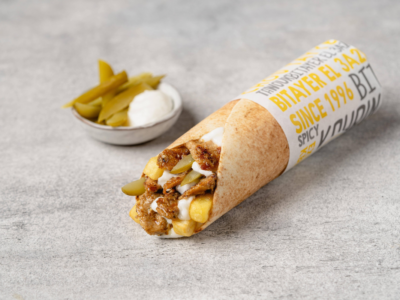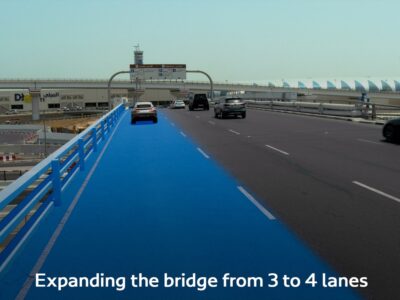Nearly a hundred years ago scientists coined the ‘fight or flight’ response term. In business, politics and life in general, we all must ask ourselves how we would react if we were faced with a major threat.
When an arrest warrant was issued for Italian businessman Silvio Scaglia, as part of a wide-ranging $2.7bn investigation into alleged tax fraud and money-laundering, the fight or flight dilemma was no longer just a theoretical question for the high-profile billionaire and serial entrepreneur, but became a cold reality.
“That was a very important period in my life and I learnt a lot in that period as abruptly I saw that there was an arrest warrant for me and I didn’t understand why. I felt the only thing I could do, as I was in Latin America at the time, was to take a plane, fly back and defend myself, which I did,” Scaglia says.
“It would have been too easy to just stay outside Italy, as it was possible for me to do at the time, but I felt it was more important to fight the battle and prove that all of this was wrong. I think you always know that the values you have and what you are counts more than what you have. The priority is to defend who you are and your values.”
After around 80 days spent in prison and a year under house arrest, Scaglia was fully acquitted in October 2013. Despite the ordeal, the experience has not deterred the avid businessman. Aged 57, a time when many people’s thoughts turn to retirement, he is still a major force in the global business world and the Middle East is set to be one of the key battlegrounds for his exciting new venture.
Having made his name as the founder of Fastweb, Italy’s second-biggest telecoms company, Scaglia bought luxury underwear maker La Perla at a court-led auction in June 2013. A well-known Italian family business set up in Bologna in 1971 by founder Ada Masotti, La Perla was acquired from Luxembourg-based private equity firm SMS Finance for €69m ($78.7m) and it is Scaglia’s aim to return the loss-making iconic brand to its former glory.
“La Perla has a long history… It was founded by a lady — Ada Masotti, who had from the very beginning the understanding that underwear should be made to the best quality and should be sold as a luxury item.
“Her first boxes had a pearl on top. I never understood if this is a legend or a true story, but it embodies the culture of the company. It was developed over 50 years by the same family, by the lady and her son, who always kept it positioned as the most luxurious and desirable underwear company in Italy.”

US-based private equity fund JH Partners initially bought La Perla in 2008 and invested around €50m in a bid to turn it around. Over 67 percent of its products at the time were sold in recession-hit Europe and the company was only banking revenues of €107m in 2012, which was down on the previous year. Scaglia believes this period was the catalyst for La Perla’s decline.
“It was then bought by an American fund and started a period of bad fortune. It was managed too much with a financial perspective, without the passion of an entrepreneur and without the long-term vision of a family… Family businesses are always consistently long term… because it is a passion and always a long-term strategy. La Perla suffered a lot in those seven years.
“I bought it in an auction from a pre-bankruptcy process and the main reason I thought of La Perla is because it is a very appealing company to launch and it is unique. Nothing is like La Perla in the world that can attract some many refined and wealthy customers, as La Perla does.
“It still has the uniqueness. If you visit La Perla in Bologna you will immediately realise the craftsmanship and the skill in designing products and modelling products. It is down to a number of people who have spent decades with the company who grew with the founders and who have the skill to work with the most sophisticated laces and create very technical products.
“Today, in a globalised world you can do even more than that as La Perla is original, was a European name, and then expanded globally and the brand is global but to maintain that work that is European.” His comments will be welcome news to emotive Italian trade unions who had feared that the restructuring would result in job losses among La Perla’s 800 or more staff.
In fact, Scaglia is focused on expansion and investment and in 2013 said he planned to pump €110m into restructuring and relaunching the brand, on top of the €69m he spent buying the company, something he has more than delivered on. “Last year we invested about €220m and this year it will be again heavy investment.
“We got control of the company in June last year and in a very short time we got a lot done. We are still in this mode of investing heavily in the brand. First is to improve the distribution and the product.
“So now the name of the game is to develop the retail and develop the brand since last year. Last year we had an impressive development programme as between new and completely new refurbishments we made-over 20 shops around the world in less than one year.”
At present, 20 percent of La Perla’s sales are in Italy, with another 35 percent in the rest of Europe and the remaining split between the US and Asia. “Asia is growing over 100 percent per year, the US is growing nicely, Italy is not growing and the rest of Europe is growing,” he says, before making his pitch as to why he sees the Middle East as a vital piece of the jigsaw puzzle.
“The reason why I am [in Dubai] is we have finally set up our corporate structure to operate here. We have reached friendly agreements with distributors in the region in order to take back control of our operations.
“There are a lot of Middle East clients who are buying La Perla around the world so here we want to create and maintain the retail network. We have created a company that allows us to operate directly in the free zones and it has been done in a way that we have control over the situation.”
While he has invested hundreds of millions of dollars worldwide, Scaglia declines to reveal how much he will invest in the Middle East, but says he “will invest however much is necessary to create the right presence” and has opted not to partner with a local established player, preferring to keep full control of the rollout of the brand.
“We have decided to go it alone as we expect to invest and we want to do it quickly and according to the brand and operate directly as we think it will be more effective. We know that the brand appeals to the Middle East clients as we know Middle East clients make so much of the big-ticket purchases that are done all over the world.
“Clearly Dubai is important and there are impressive developments expected in Dubai and Dubai can easily be a place where we have three or four shops and an atelier. In the region, Doha is growing and Abu Dhabi, Kuwait perhaps… Saudi Arabia is more [of] the atelier structure.”
When I put it to Scaglia that the emirate’s malls seem to be filling up with luxury lingerie brands such as Victoria’s Secret, Agent Provocateur and La Senza, he almost seems to choke at the thought of La Perla being mentioned in the same breath as some of these more mass-market rivals.
“It is totally different positioning from Victoria’s Secret… Our products are priced at ten times higher than Victoria’s Secret… The brand is higher up in the clear luxury position… developing products that are exclusive. Some have 14 carat gold embroideries and traditional La Perla is done in gold or precious stones…[it’s] this kind of product appeal. These are part of the atelier collection and the price range starts at about $3,000 up to $35,000 or $40,000.”
To further hammer home his argument, Scaglia points out that La Perla is traditionally placed in all the most upmarket and celebrated luxury shopping destinations in each city. “In terms of positioning of our shops if you look in the world, in Milan we are in Montenapoleone, the number one address in Milan. In Paris, we are in the best position and in London we are in Bond Street.”
In January, La Perla unveiled its latest collection with its debut atelier show at Paris Haute Couture Fashion Week, which contained supermodels such as Naomi Campbell sashaying down the runway in a variety of knickers, bras, stockings and suspenders. With the Middle East’s adherence to nudity and insistence on women being covered up, the obvious question is how Scaglia plans to market such a brand in the region and if there will be any self-censorship necessary.
“I don’t think so, that is why I think you should really have a look at the fashion show as the type of message that La Perla conveys to the client is very far away from any sexuality and is not sexual and is always elegant and yes sensual but always clearly on this side of the line,” he says.
The presence of Naomi Campbell in La Perla’s first Paris show links back to Scaglia’s other big investment into fashion in recent years. Scaglia set up Pacific Capital in 2007 and three years later acquired the Elite Model World network, the top fashion agency which has been linked to a roll call of some of the most beautiful and famous women in the world, such as Cindy Crawford, Gisele Bündchen, Tyra Banks, Monica Bellucci, and, of course, Naomi Campbell.
His links to Elite were what attracted Scaglia to La Perla in the first place and he sees the duo of companies as a powerful set of tools for breaking into the competitive fashion industry. Elite has been instrumental, not just as a modelling company but in positioning itself as a fashion consultancy service by developing links with top fashion magazines, academies and schools. This is something it has done in China and something Scaglia says could also work in the Middle East.
“I think there is a very important opportunity for Elite in the Middle East and for the Middle East towards Elite. Let me explain that: Elite, for example, advises the city of Shenzhen in China, which is the largest producer of textile goods, in order to develop their own fashion system,” he says.
One example is the annual Elite Model Look competition, which was launched in 1983 and each year picked the best new face from over 400,000 contestants from 60 countries. The final event has been held in Shenzhen for the last two years and this is something Scaglia has not ruled out holding in Dubai at some point. “Today it is too early to say… But it looks to me [it is] quite natural to go in that direction.”
Moving from an engineering and technology background and then moving into fashion, Scaglia says he puts his success down to the fact he has looked at the options but, in the end always goes with his gut feeling.
“By training I am very analytical but I pride myself to remember to take the final decision by the guts. If you want to have real success, as an entrepreneur you need to do something that is one step ahead.
“I tell my family and daughter if you want to have a child never think about the difficulties they will have to go through in life as you will never procreate. You need to have a good solid understanding of the analytical situation but then you need to decide with your guts,” he says in a thoroughly Italian way.
Having made billions, fought to prove his innocence and worked with some of the most powerful and beautiful people in the world, Scaglia’s gut feelings have rarely let him down so far.
“I have seen people making money in so many different ways and I think the real bottom line is to do what you think you are very good at doing. In general, if you do something with a lot of passion it is because you are good at doing that. If you are good enough to do it better than the others you will make money at whatever you do.”








